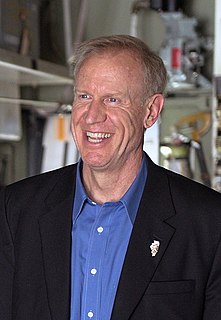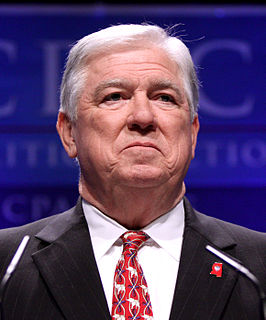A Quote by Bruce Rauner
Government unions should not be allowed to influence the public officials they are lobbying, and sitting across the bargaining table from, through campaign donations and expenditures.
Related Quotes
I just think the most important aspect in being able to have a productive relationship between the teachers' unions and the districts and the states that they're dealing with is that the person sitting across the table from them should not have received the largest campaign contributions from the teachers' union itself.
I'm a lobbyist and had a career lobbying. The guy who gets elected or the lady who gets elected president of the United States will immediately be lobbying. They would be advocating to the Congress, they'll be lobbying our allies and our adversaries overseas. They'll be asking the business community and labor unions.


































